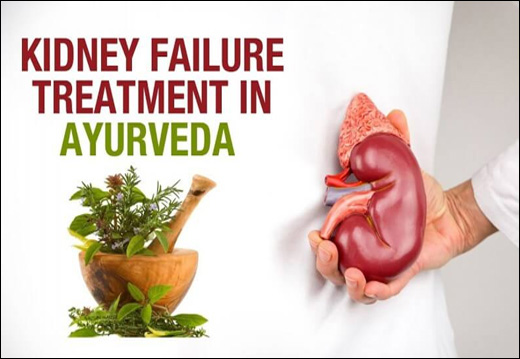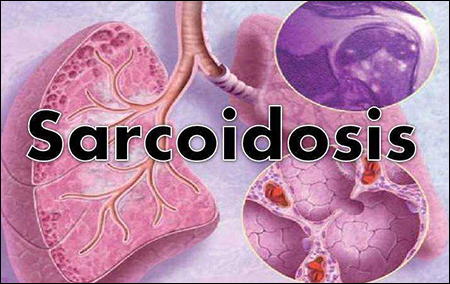Types of Brain Tumors
There are many types of brain tumors and so are many ways to treat them. Convention medical advices should not be ignored. The listed ayurvedic medicines are traditional bhasma medicines described in ancient ayurvedic texts as treatment of cancers and various tumours. These can be considered as alternative treatment of tumours. All these should be taken under the supervision or guidance of an Ayurvedic expert and as an alternative treatment for Brain tumors.
In my practice, I have seen wonderful results, with these bhasma medicines recommended in ayurvedic texts as tumor healing traditional medicines. It is better to contact us personally by meeting (especially if one affords to meet). If the patients are located far off, then atleast talk to Dr. Vikram Chauhan and discuss the case before starting anything.You can call at +91-172-521-4030 and fix the appointment for tele-talk. You can send scanned reports and other documents via e-mail.
Gliomas
Gliomas as a group are considered the most common type of brain tumor. A glioma is a tumor that grows from a glial cell, which is a supportive cell in the brain. There are two types of supportive cells: astrocytes and oligodendrocytes. Therefore, most gliomas are called either astrocytoma or oligodendroglioma, or a mixture of both. Gliomas are graded (how much the tumor appears like normal brain tissue) from I to IV based on their degree of aggressiveness. A grade I glioma is a benign tumor, while grades II through IV are tumors with an increasing degree of aggressiveness and are therefore considered increasingly malignant in potential.
Types of Gliomas
- Astrocytoma is the most common type of glioma. Astrocytomas begin in cells called astrocytes in the cerebrum or cerebellum. Glioblastoma multiforme (also called grade IV astrocytoma) is a very aggressive form of astrocytoma.
- Oligodendroglioma is a tumor that develops from cells called oligodendrocytes. These cells are responsible for producing the myelin that surrounds nerves.
- Brain stem gliomas begin in the glial cells in the brain stem.
- Ependymomas, which begin in the ependyma (the cells that line the passageways in the brain where cerebrospinal fluid is made and stored.
- Mixed tumors, which are composed of more than one of the glial cell types.
Non-Glioma Tumors
Non-glioma tumors begin in other types of cells in the CNS, and are described as either benign (noncancerous) or malignant (cancerous).
- Meningioma is the most common primary non-glioma brain tumor. It begins in the meninges surrounding the brain and spinal column and is most often benign. Meningioma can cause significant symptoms if it grows and presses on the brain or spinal cord.
- Acoustic schwannoma (also called acoustic neuroma) is a rare tumor that begins in the vestibular nerve and is normally benign.
- Craniopharyngioma is a benign tumor that begins near the pituitary gland. These tumors are rare.
- Medulloblastoma, which begins in granular cells in the cerebellum, is most common in children and is most often malignant.
- Primary CNS lymphoma is a form of lymphoma (cancer that begins in the lymphatic system) that starts in the brain.
- The pineal and pituitary glands, located near the base of the brain, are the location of about a small no. of all brain tumors.
Risk Factors
- Age:- Children and older adults are two groups most likely to be diagnosed with brain tumors.
- Gender:- Men are generally more likely than women to develop gliomas, while women are more likely to be affected by meningiomas.
- Home/occupational exposures:- Occupational exposures to solvents, pesticides, oil products, rubber, or vinyl chloride may increase the risk of developing a brain tumor, although there is no scientific evidence to date. Black hair dye has also been researched as a potential cause of brain tumors, although the data remains inconclusive at this time.
- Some genetic conditions:- Some genetic conditions, such as von Hippel-Lindau disease, Turcot syndrome, or neurofibromatosis, increase the risk of developing a brain tumor.
- Exposure to infections, viruses, and allergens:- Infection with the Epstein-Barr virus increases the risk of CNS lymphoma. Several types of other viruses have been shown to cause brain tumors in experimental animal studies; however, more data is needed in order to determine if exposure to infections, other viruses, or allergens affect brain tumor risk.
- Electromagnetic fields:- Electromagnetic fields, such as energy from power lines or from cell phone use, may or may not increase the risk of developing a brain tumor.
- Ethnicity:- In the United States, whites have higher rates of gliomas but lower rates of meningioma than blacks. The rate of malignant brain tumors in Japan is less than half the rate of Northern Europe.
- Lonizing radiation:- Treatment with ionizing radiation (including x-rays) has shown, in some cases, to be a risk factor for brain tumors.
Signs and Symptoms
- Headaches, which may be severe and may worsen with activity or in the early morning.
- Seizures
- Personality or memory changes
- Nausea or vomiting
- Vision changes such as blurred
Specific Symptoms related to Vision
Symptoms specific to the location of the tumor includes;
- Pressure or headache near the tumor
- Loss of balance and difficulty with fine motor skills
- Changes in judgment, including loss of initiative, sluggishness, and muscle weakness or paralysis (Frontal lobe of the cerebellum)
- Partial or complete loss of vision (occipital lobe of the cerebellum)
- Changes in speech, hearing, memory, or emotional state including aggressiveness and problems understanding or retrieving words (temporal lobe of the cerebellum)
- Altered perception of touch or pressure, arm or leg weakness on one side of the body, confusion with left and right sides of the body (parietal lobe of the cerebellum)
- Inability to look upward (pineal tumor)
- Lactation, altered menstrual periods, and growth in hands and feet in adults (pituitary tumor)
Diagnosis as per Modern Science
Imaging tests
- Magnetic resonance Imaging
- Magnetic Resonance Spectroscopy
- Computerized Tomography
- Positron emission tomography
- Myelogram
Neurological hearing and Vision tests
- Blood tests
- Lumbar puncture
- Electroencelography
- Cerebral arteriogram
- Stereotactic biopsy
- Evoked potentials
Staging
Malignant (cancerous) tumours of the brain and spinal cord (the central nervous system [CNS]) differ in several important ways from tumors in other parts of the body. In the rest of the body, the most deadly aspect of a malignant tumor is its ability to spread throughout the body. In contrast, tumors starting in the brain or spinal cord can spread to other parts of the CNS, but they almost never spread to other organs. The dangerous aspect of these tumors is that they can interfere with essential, normal functions of the brain.
Ayurvedic Treatment for Brain Tumors and other Cancers
The below mentioned combination of classical ayurvedic medicines is given. These can be used along with ongoing conventional treatment like radiotherapy, surgery or chemotherapy. These are Ayurvedic medicines in proper dosage for adult patient. For Children, the dosage will be 1/4th of this.
1. Sachets
- Hirak Bhasm - 300 mg
- Swarn Bhasm - 1 gm
- Swarn basant malti Ras - 1 gm
- Abharak Bhasm (Sahasar Putti ) - 2 gm
- Swarn makshik Bhsam - 5 gm
- Rasraj Ras - 1 gm
- Bhrami Vati with gold - 2 gm
- Yogender Ras - 1 gm
- Ekang Veer Ras - 2 gm
- Navratan kalp amrit Ras - 2 gm
- Raj Mrigank Ras - 1 gm
- Akik Pishti - 10 gm
- Jahar Mohra Pishti - 5 gm
- Praval Pishti - 5 gm
- Vaikrant Bhasm - 2.5 gm
- Vrhit vangeshvar Ras - 1 gm
- Basant kusmakar Ras - 1 gm
- Vrhit sutshekhar Ras - 1 gm
- Dhatri Loh - 5 gm
- Kalmegh Navayas Loh - 5 gm
- Punarva Mandoor - 5 gm
- Tamar Bhasm - 5 gm
- Giloy Satv - 10 gm
- Mukta Pishti - 4 gm
- Parval Panchmamrit Ras - 5 gm
- Vriht Vaat Chintamani Ras - 1 gm
Mix all the above medicines and make Sixty ( 60 ) equal dose sachets.Take one sachet twice a day with one to two teaspoonful of honey and half teaspoonful of almond oil or with milk.
These should be taken for at least 6 months. The results are evident within first few days of treatment. Along with these Sachets, The following are also recommended -










